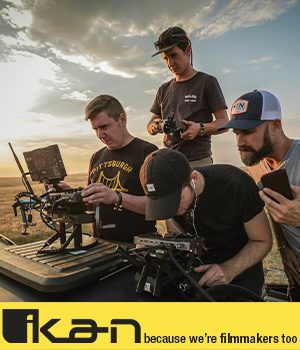- Forum
- General Discussion | Introductions | Off Topic Forum
- Photography General Discussion
- Advantages in shooting B&W with digital?
Advantages in shooting B&W with digital?
-
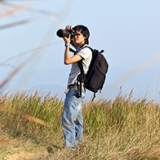 Topic Author
Topic Author
- MM Images
- Snapobsessed
-
- Nikon D610
- Followers: 113
- Posts: 265
-
Points:
3104
-

- Stealthy Ninja
- Moderator
-
- Fuji X stuff and a 1DsIII for some reason
- Followers: 982
- Posts: 16300
-
Points:
6837
Post #439622
If you shoot RAW you keep the colour information anyway... so if you were going to shoot black and white so you can see the contrast/resolution, then shoot RAW so you have the option of colour later on.
-
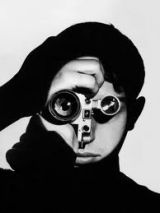
- Robert Chen
- Photography Hooked
-
- Nikon D300
- Followers: 194
- Posts: 794
-
Points:
5860
Post #439630
Stealthy Ninja wrote: With my Sony I shoot black and white when doing manual focus. It helps with focusing.
If you shoot RAW you keep the colour information anyway... so if you were going to shoot black and white so you can see the contrast/resolution, then shoot RAW so you have the option of colour later on.
How does that make a difference when focusing?
Nikon D300 24-70mm f2.8
70-200mm f2.8
50mm f1.4 & 50mm f1.8
105mm f2.8
2 SB800
-
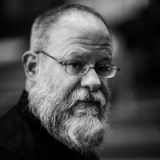
- garyrhook
- Oh Wise One
-
- Nikon D850, Nikon D750, Panasonic G7K
- Followers: 912
- Posts: 11103
-
Points:
67681
Post #439632
Aside from focusing, if the display presents a grayscale image, which I believe is about being able to detect contrast more easily in B&W instead of color. I can see that being a good thing.
Aside from that, I think it's a somewhat apples and oranges comparison. B&W film doesn't work the same way as a digital sensor, and your conversion in post still brings you to the point where you can manipulate exposure and contrast to your heart's content. Digital provides so much more control and possibility in post that film can't touch. I think. Others may disagree, in which case I await education.
-

- Stealthy Ninja
- Moderator
-
- Fuji X stuff and a 1DsIII for some reason
- Followers: 982
- Posts: 16300
-
Points:
6837
Post #439649
Robert Chen wrote:
Stealthy Ninja wrote: With my Sony I shoot black and white when doing manual focus. It helps with focusing.
If you shoot RAW you keep the colour information anyway... so if you were going to shoot black and white so you can see the contrast/resolution, then shoot RAW so you have the option of colour later on.
How does that make a difference when focusing?
A7 has an electronic viewfinder. You see everything in black and white. Because it's black and white you can pick up if it's sharp easier (more contrast). The old TV cameras had black and white viewfinders for this purpose (maybe they still do, I haven't used one for a long time).
-
 Topic Author
Topic Author
- MM Images
- Snapobsessed
-
- Nikon D610
- Followers: 113
- Posts: 265
-
Points:
3104
-
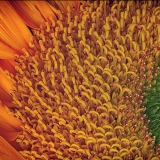
- tganiats
- Lone Wolf
-
- Nikon D800
- Followers: 99
- Posts: 218
-
Points:
130
Post #439676
I use to agree with garyrhook,
and I still do, because most of our cameras do. I agree, shoot color and convert to B&W later...You get a lot more control, including being able to use many different color filters later (your father couldn't change filters once the image was captured)There are no advantages to shooting in B&W with digital, if the camera captures color images. Kinda illogical.
But what I didn't realize is that the dedicated B&W digital cameras offer an advantage over the "normal" digital cameras. Color cameras need a grid of 3 pixels (one for green, one for red, one for blue) that is later combined for the color. If you have a dedicated B&W camera, then you, in essence, triple your pixels. With some advantages.
Worth a read, if you can find it.
Post #439763
It is the same with digital in that you need to see in your minds eye what you are shooting will look like in B&W. But any properly exposed image will show good contrast, and range. If your shot is too far out, then converting to B&W will not make it any better, in fact it will look worse. Having a B&W mindset will make you more picky about what you are shooting as well. At least that is how it is for me.
-

- Glen Martin
- Snapobsessed
-
- Canon 5D Mark II
- Followers: 149
- Posts: 447
-
Points:
3203
Post #439780
I like the look better of what I've done in the darkroom, the paper and gloss, etc. I haven't done nearly as much digitally but I did have one photo I shot in color digitally and did a B&W version of it and got it accepted into an exhibit. Maybe shooting in B&W gets you thinking more about the tones and contrast in a scene or subject since B&W is basically the absence of color.
Sharon
-

- TGonzo
- Photography Hooked
- Followers: 127
- Posts: 505
-
Points:
4661
-

- Shadowfixer1
- Photo Elder
-
- Olympus OMD E-M1 MKII
- Followers: 1350
- Posts: 5563
-
Points:
73955
Post #439928
-
 Topic Author
Topic Author
- MM Images
- Snapobsessed
-
- Nikon D610
- Followers: 113
- Posts: 265
-
Points:
3104
- Forum
- General Discussion | Introductions | Off Topic Forum
- Photography General Discussion
- Advantages in shooting B&W with digital?
Latest Reviews
The Olympus Pen E-P7 is an affordable micro four thirds mirrorless camera with 4K video capabilities, a 20.3MP sensor, and 121 focus points, making it a solid entry-level camera for beginners.
The Panasonic G9 II is a 25.2-megapixel micro four thirds camera with numerous features that make it punch out of its weight class, like 779 AF points, 5.8K video, and weather sealing.
The Fujifilm XT5 is a 40MP mirrorless camera capable of 6.2K video at 30p. With those specs, it’s an ideal choice for photographers needing a camera to pull double duty for imaging and video.
The Canon EOS R100 is an entry-level mirrorless camera introduced in 2023. But just because it’s an entry-level camera doesn’t mean it’s a bare-bones camera. Find out why in this review!
Forum Top Posters
-
1Scotty 8 posts
-
2TCav 4 posts
-
3CharleyL 4 posts
-
4Colorado Mike 3 posts
-
5Garbo 3 posts
-
6J Photo Man 3 posts
-
7Petroguy 2 posts
-
8Fess Walker 2 posts
-
9Hassner 2 posts
-
10MYoung 2 posts
Latest Articles
Auto white balance is a camera setting that adjusts the color temperature of your images automatically. It often works well, but you should know a few tips to fix problems it might cause, too.
The Canon EOS 5D Mark III might be more than a decade old, but it still has the chops to be a quality camera for photographers in 2024.
Starting a photography business can be a daunting task. There is a lot to do, and many mistakes can be made. This guide helps you minimize mistakes and maximize your success!
The Canon 6D Mark II might be an older DSLR, but that doesn’t mean it isn’t a good option for 2024. In fact, this budget-friendly camera is a powerhouse for stills and videos.
In this guide to the bokeh effect, you’ll learn what bokeh is and the factors involved in creating it. You’ll also explore some beautiful example images to spark your creativity with bokeh!
Upgrade your kit in 2024 with the best intermediate camera on the market! The question is, what camera fits the bill? We’ve got three top options for you to choose from in this buyer’s guide.
The best photography jobs right now are a mix of tried-and-true gigs like wedding photography and new jobs highlighting AI’s capabilities, travel, and videography.
The Olympus Pen E-P7 is an affordable micro four thirds mirrorless camera with 4K video capabilities, a 20.3MP sensor, and 121 focus points, making it a solid entry-level camera for beginners.













